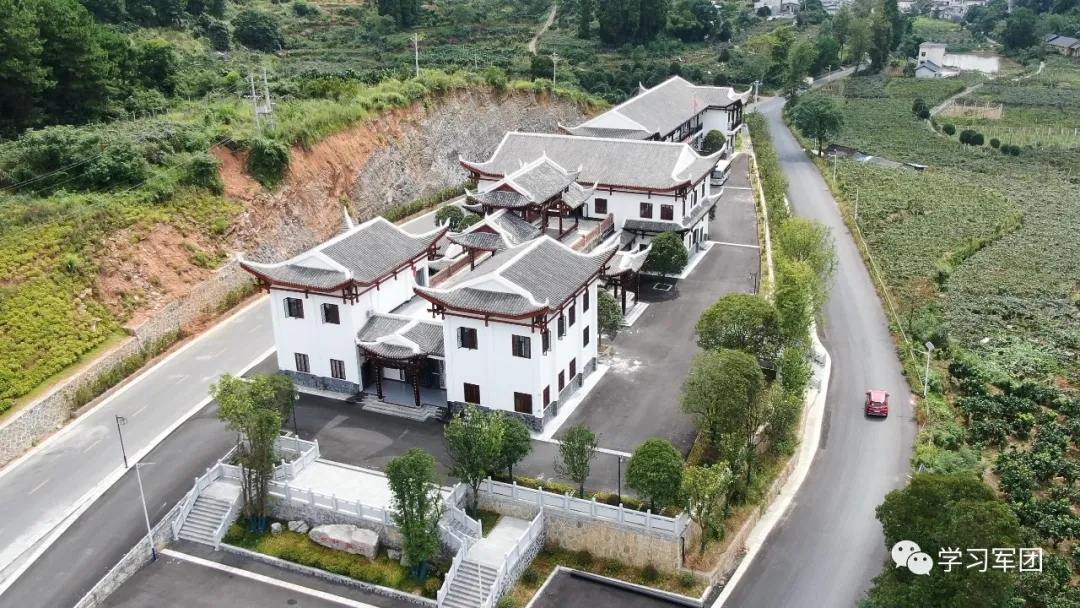By Wang Wowen, Kang Zizhan, and Tan Lin
Editor's Note: This is one of the heartwarming stories from China in this new era. Since the 18th National Congress of the Communist Party of China (CPC), President Xi Jinping, who cares for the ordinary people, has visited poverty-stricken regions many times to bring solutions to the challenges and obstacles hindering poverty reduction. The People’s Liberation Army (PLA) has considered its participation in poverty alleviation a concrete move to translate its loyalty to the Party into practical actions. With a strong sense of mission, the whole army is fulfilling its commitment to share the Party’s burdens and strive for the great rejuvenation of the Chinese nation and the benefit of the people.
[Playback] On November 3, 2013, President Xi Jinping visited Changputang Village in Liaojiaqiao Town, Fenghuang County, Xiangxi Tujia and Miao Autonomous Prefecture , in Hunan Province for a survey on the development of specialized agriculture and poverty alleviation. President Xi pointed out that the biggest challenge for completing the building of a moderately prosperous society in all respects lies in rural areas especially poverty-stricken regions. Xiangxi is a key area for in the national poverty alleviation and development program, and the local CPC committee and the governmentauthorities should attach great importance should be attached to relevant work, give full play to the prefecture’s advantages, set rational targets, and accelerate overall development through measures such as optimizing the productivity pattern, coordinating rural and urban development, and enhancing paired assistance.
Changputang is a village hidden deep in Wuling Mountains in Xiangxi Tujia and Miao Autonomous Prefecture, Hunan Province. Today, the village features flat, neat roads, new residences and lush orchards that scatter on hillsides and amidst fields. With the help of local government and troops, Changputang has builtindustrial parks to grow cash crops such as kiwi fruit and pomelo. Last year the per capita disposable income in the village surpassed 20,000 yuan (about 3,096 U.S. dollars). Changputang has not only shaken off poverty but also become a famous demonstration village for rural revitalization.
Local villagers said that with the help of local government and the National University of Defense Technology (NUDT), they embarked on a path of technology-driven development.
Big Data and Cloud Platforms Increase Rural Incomes
Liang Licheng, a villager in Changputang, welcomed the reporters to his home, a two-story residence. “Thanks to the government and the troops, I have got rid of poverty and moved into this new house. I earn more than 30,000 yuan each year from my kiwi fruit orchard that covers over half a hectare.”

The picture shows the birds view of the Changputang Village. Changputang is a village hidden deep in Wuling Mountains in Xiangxi Tujia and Miao Autonomous Prefecture, Hunan Province . With the financial and technological assistance from the National University of Defense Technology (NUDT), the village has improved its traffic conditions by renovating dirt roads and building new roads with asphalt pavement with a total length of 9.7 km. (PLA Daily/Li Qian)
When asked what he planned to do next, Liang replied: “a few days ago, anexpert from NUDT came to our village. They will help me to do soil testing with the big data system they developed and then select fruit species according to the soil texture in my orchard. With their assistance, I can make more money.”
The expert that Liang mentioned is Professor Li Jun from the College of Electronic Science and Technologyof NUDT.
In 2015, NUDT began to provide paired assistance for Changputang Village. After a thorough investigation in the village and local authorities, the university decided to take advantage of its technological strength to help the village get rid of poverty.
In 2016, the College of Electronic Science and Technology of NUDT reached an agreement on technological cooperation with Xiangxi Bureau of Natural Resources and Planning. Based on the high-performance geographical information system platform, the latest research result of Li Jun’s team, the university joined hands with the Hunan Second Surveying and Mapping Institute to build the “Digital Xiangxi” Integrated Geographic Information Public Service Cloud Platform.
The platform uses technologies, such as BeiDou satellite positioning, remote sensing, the Internet, and big data to survey land utilization, planning, basic farmland, river systems, and other geographical data in Xiangxi prefecture. Based on 3D topographical models and natural environment data, it can match the most suitable plant species for different soil properties.
Based on the big data analysis of the cloud platform, the local government helped Liang Licheng, once a poverty-stricken villager in Changputang, choose a plot of land suitable for growing kiwi fruit. Liang’s orchard saw a good harvest this year.
“Besides farmland management, the platform can also use big data to help improve the development planning of the entire region,” said Li Jun. Relying on the platform's big data analysis, those places without tillable land and reservoirs that are not suitable for living and agricultural production will be obvious. Analysis of data such as topography and natural environmen can also offer advice on planting cash crops and developing industries in a certain area for farmers and help the local government to formulate development plans and push forward targeted poverty alleviation.
According to Xiang Hongwei, deputy director of the Xiangxi Bureauof Natural Resources and Planning, the platform helped Huangtupo Village in Malichang Town, Huayuan County draw a development blueprint focusing on camellia, tea and tobacco planting. Based on its over 200 hectares of low-yield camellia trees, the village added about 60 hectares of high-yield camellia trees. Through reclaiming wasteland, the village has built a mountain tea plantation covering more than 130 hectares.
In the e-commerce service station in the Changputang Village, several young people were using online platforms to sell fruits. Such buzzwords as resource integration, industrial chains, and e-commerce, once being previously unfamiliar to local villagers, play an important role in helping Changputang residents earn their fortune.
Today, the platform offers soil, precipitation, and climate analysis services to farmers in such counties, cities, and districts in Xiangxi prefecture as Huayuan, Fenghuang, and Jishou, guiding them to plant cash crops in a scientific and rational way.











